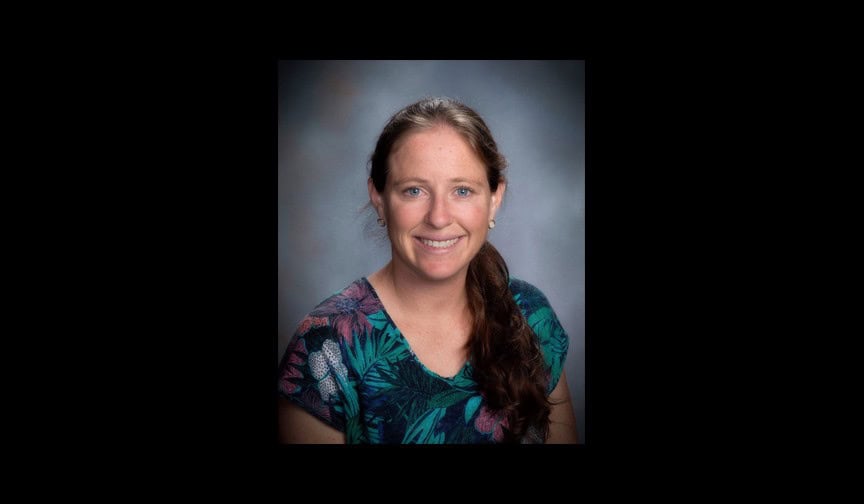
Sara Shelley is the 2018 recipient of the Jack Zaifman Humanitarian Award.

Social studies teacher Sara Shelley’s goal in teaching her Genocide Studies course at Rancocas Valley Regional High School is to go beyond empathy. The Moorestown resident said her hope is that by the time her students leave the class, they’ve learned to recognize the signs of these atrocities and how to be agents for change to prevent them from happening again.
Since taking over the Genocide Studies course at Rancocas Valley, the course has grown in popularity with nearly 150 students requesting to take the class each year, but it’s not just the students who have taken notice of Shelley’s passion for the subject. The New Jersey Commission on Holocaust Education and the family of Holocaust survivor Jack Zaifman have recognized Shelley with the Jack Zaifman Humanitarian Award.
Each year, the award is presented to an educator who teaches the Holocaust and genocide, and Shelley is one of two teachers selected this year. She accepted the award at the New Jersey Commission on Holocaust Education quarterly meeting this month.
A Moorestown native, Shelley attended Moorestown High School before studying history at the University of Pennsylvania. She said growing up, her parents were history enthusiasts who were always eager to watch the History Channel or travel to new places.
Heading into college, Shelley knew history was her passion, but she wasn’t sure what career that would translate into.
“With a history major, I started feeling like I really loved this stuff and wouldn’t it be fun to teach it,” Shelley said.
Shelley obtained her master’s degree in education at the University of Pennsylvania and applied at Rancocas Valley in the spring of 2007, where she has taught ever since. She said while she never envisioned herself teaching prior to college, her passion for the work has blossomed since getting into the classroom. She said the enthusiasm within her department is infectious and has pushed her to find creative ways to get her students engaged.
In 2011, one of Shelley’s fellow social studies teachers, Leah Chadwick, proposed a Genocide Studies course at Rancocas Valley. Within two years of the class’ creation, Shelley started teaching the course along with Chadwick because the school was being inundated with requests to join the class. Chadwick has since left Rancocas, but Shelley continues to teach the course.
The class encompasses as many genocides as Shelley can fit into a nine-week time span, including the Holocaust and the Rwandan and Cambodian genocides. Over the course of the nine-week class, Chadwick tries to go beyond just the history. She teaches a unit on the psychology of genocide and has students look at how average humans are capable of killing on a mass scale. She also delves into the obstacles to resistance and the international community’s role.
While the course may sound depressing on the surface, she makes a point to look at stories of reconciliation as well. She said her course covers examples of human strength and perseverance. Where there are people capable of killing, there are also examples of humans’ immense capacity for forgiveness, she said. For instance, when she covers the Rwandan genocide, she touches on the fact there are survivors and perpetrators who live side-by-side in the same village today because there are survivors capable of profound acts of forgiveness.
Shelley said genocide follows a formula of sorts, and she teaches her students the stages of genocide as well as what individuals, organizations and nations can do to prevent these tragedies from happening again.
Larry Glaser, executive director for the New Jersey Commission on Holocaust Education, said when they were looking at this year’s potential award winners, Shelley not only hit all of their criteria with her course but in her enthusiasm for teaching.
“She was very positive in the things she had done,” Glaser said. “She had all of that on the page and all of that in reality.”
Shelley and her husband, Jonathan Freitag, live in Moorestown with their two children. To date, the two have travelled to Germany and Cambodia. She said she incorporates these photos into her lesson plans. As part of the award, Shelley will receive $500, and she said her hope is to put this money toward a trip to Poland to visit the Auschwitz concentration camp, so she can share that experience with her next class.









